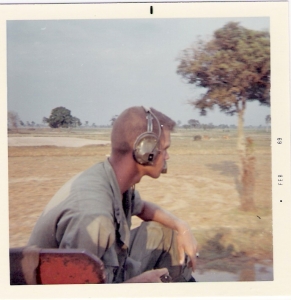
A difficult way to understand war.
The Veteran Voices of Pittsburgh started out quietly enough. First, a few vets gathered for breakfast once a month. Eventually, there was a trip planned to visit a monument in Washington, DC.
Stories that had been bottled up for as much as fifty years began to pour out on that bus trip. Stories of what war was really like.
Everyday should be Veteran’s Story Day. I believe in the healing power of telling true-life stories, especially the ones that are hardest to tell. Not only is it good for the teller, but the world needs first person accounts in order to know what actually happened during calamitous events.
One of the great qualities of the recent PBS Vietnam War series, created for television by Ken Burns and Lynn Novick, was the relentless telling of stories by people who lived through it on both sides. The stories were often brutal, but we need to hear them. Third person summaries that supposedly supply facts cannot do justice to the horror and terror – or the exhilaration for some – of war.

The Vietnam War, 1969.
A group of less well-known documentarians in Pittsburgh, Pennsylvania, Veteran Voices of Pittsburgh, have been collecting and recording the oral histories of veterans and survivors on podcasts for several years. Kevin Farcas, founder, and Todd DePastino, historian, have reached out to find veterans of all wars and produced a unique archive of stories captured in a warm conversational style.
In 2016, in his 90th year, Gene McShane was recorded describing what it was like to land on Omaha beach in Normandy having been detained so long in the landing boat because of bad weather that he’d eaten all the C-rations he would need for the next ten days of battle. Gene died a few months later, but his story from World War II exists for eternity.

I was honored to be interviewed by Kevin and Todd back in 2015, Podcast #12, when they spoke with me about how I was affected by my husband’s death in the Vietnam War. Their questions were insightful and inspiring. It was as if they were helping me to turn the familiar shape of my story over and over and find new discoveries about myself.
Telling the story of a challenging experience is different from crafting the story into an essay or a memoir. Telling requires a different kind of courage and may ultimately emerge like an earnest whisper in another’s ear, for both the teller and the listener. The teller may feel a great trepidation just to release the story into the atmosphere. It takes time to get to the point where it’s possible to let the story exist on its own – outside of our mind and heart.
Today we need these times of feeling safe to share our stories more than ever. We must take every opportunity to practice compassionate listening and sharing – with everyone.

Cpt. Dave Crocker, Vietnam War, 1969.
Ruth is the author of People of Yellowstone and Those Who Remain: Remembrance and Reunion After War.
